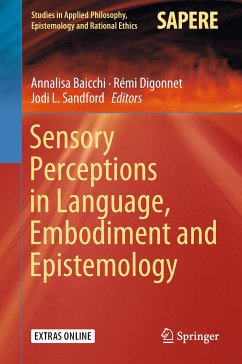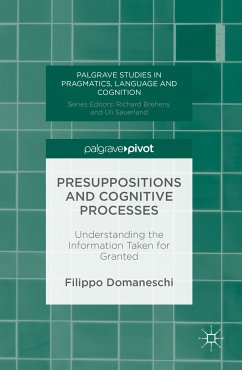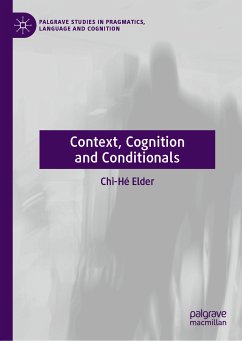
Linguistic and Cognitive Aspects of Quantification (eBook, PDF)
Versandkostenfrei!
Sofort per Download lieferbar
72,95 €
inkl. MwSt.
Weitere Ausgaben:

PAYBACK Punkte
36 °P sammeln!
This volume presents the results of psycholinguistic research into various aspects of the grammar of quantification. The investigations involve children and adults, speakers of different languages, using a variety of experimental paradigms. A shared aspect of the studies is that they present their experimental results as evidence evaluating linguistic theories of quantification. Topics discussed include the interpretation of universal, comparative, and superlative quantifiers, quantifier spreading, scope interaction between pairs of quantifiers and between quantifiers and wh-phrases, distribut...
This volume presents the results of psycholinguistic research into various aspects of the grammar of quantification. The investigations involve children and adults, speakers of different languages, using a variety of experimental paradigms. A shared aspect of the studies is that they present their experimental results as evidence evaluating linguistic theories of quantification. Topics discussed include the interpretation of universal, comparative, and superlative quantifiers, quantifier spreading, scope interaction between pairs of quantifiers and between quantifiers and wh-phrases, distributivity and cumulativity, the interaction of quantifier interpretation with information structure, the disambiguating role of prosody, the functional overlap between universal quantification and perfectivity, and much more. The focus on experimental evidence makes this book essential reading for linguists (syntacticians, semanticists and pragmatists), psycholinguists and psychologists interested in quantification.
Dieser Download kann aus rechtlichen Gründen nur mit Rechnungsadresse in A, B, BG, CY, CZ, D, DK, EW, E, FIN, F, GR, HR, H, IRL, I, LT, L, LR, M, NL, PL, P, R, S, SLO, SK ausgeliefert werden.












